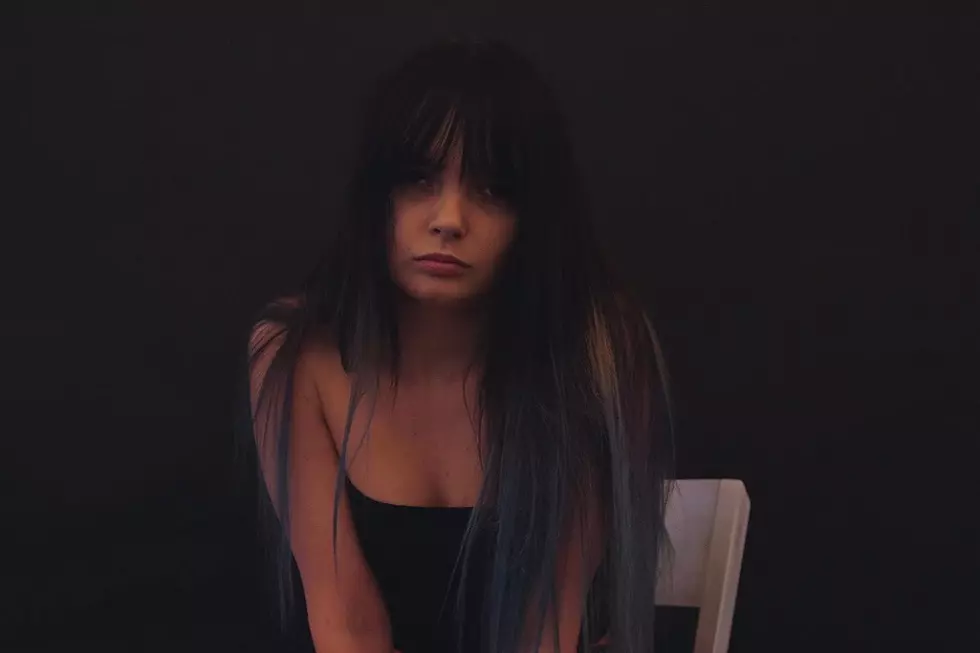
Interview: Brianna Harness Gets Real About Life in the Jennings Family Tree
To country music fans, Waylon Jennings and Jessi Colter are outlaw royalty. To Brianna Harness, they're the great-grandparents who hired a bunch of pretend princesses and threw her a big birthday party when she was a toddler.
"Growing up, it was pretty normal ... We had our own struggles, our own problems. And with Waylon passing away when I was two, three years old, I don't have too much of a memory of him -- I just have, like, a whole bunch of pictures," says Harness, now in her early 20s. She's the daughter of country rapper Struggle Jennings (given name: William Harness), himself the son of Jennifer Eddy, who is the daughter of Colter and her first husband, Rock and Roll Hall of Fame guitarist Duane Eddy.
For those keeping score at home, that means Waylon Jennings is Harness' step-great-grandfather, and that she's also related to musician and producer Shooter Jennings, the son of Colter and the elder Jennings. In Nashville, where everyone has some sort of connection to the industry, though, it never seemed like anything to brag about.
"As I've gotten older, and the more I've gotten into music, I feel like they definitely set huge stepping stones and paved the way for me," Harness reflects. "A lot of artists don't really have that privilege ... but it also set high standards -- very high standards -- with where I was supposed to go and what I'm supposed to do with my music and how I'm supposed to sound."
Harness recalls herself as an "extremely musical" child -- she sang in the choir, was first chair in band and "just, like, ran around singing all the time" -- but her debut album, Welcome to My Nightmare, only just arrived in 2020. She dreamed of being a forensic scientist, then considered a few other career paths; music as her life's work wasn't a given.
"It's such a tough industry, you know? There's so many artists out there, and it's such a battle to really get your name out there and get your music heard, and a very expensive process as well," Harness explains. "But now that I'm here, I love it. I love it so much. I couldn't see myself really doing anything else."
Harness' own musical tastes span decades and genres, and she admits that she's "still figuring out" her full artistic spectrum. "I kind of plan to be all over the place, you know? ... With streaming platforms and the way everything's set up, I feel like you're really allowed to just completely be yourself," she reasons.
On Welcome to My Nightmare, which follows an EP of duets with her father, the artist is a little bit Amy Winehouse and a little bit Billie Eilish: There's a dark undercurrent to her beautiful, aching vocals, for example on her cover of Colter's 2006 album cut "The Canyon."
Beyond her Colter cover, Harness' tracklist contains songs written by her father and grandmother -- additional opportunities to leverage her family's talent. Harness and her dad haven't always had a picture-perfect relationship: During some of Harness' childhood, Struggle Jennings was in jail; her mother, meanwhile struggled with drugs, causing the singer to leave home at 15. Nonetheless, she calls her father her "best friend," someone who can effortlessly channel her feelings and personality into lyrics.
"He just put himself in my perspective ... and it was just -- it's beautiful," Harness says. "We don't really like hold onto any past grudges or anything like that -- we're just here to create with each other ...
"There's probably not very many things that we don't know about each other," she adds. "There was so many times where I was like, 'Oh, I could see this going this way' ... and he was just like, 'Oh, what about this?' And I'm like, 'Wow, that's insane, I didn't even know I felt like that and now you've given me these lyrics.'"
Although it's not on her album, Harness' sessions for Welcome to My Nightmare also included a reimagining of Struggle Jennings' "Outlaw S--t," which itself pulls from Waylon Jennings' posthumously released song of the same name, an altered version of his 1978 release "Don't You Think This Outlaw Bit's Done Got Out of Hand." She alters the lyrics ever so slightly, to sing the story of his drug crimes, sentencing and jail time from her point of view.
Harness recorded "Outlaw S--t" and created its accompanying music video as a Father's Day gift. It was a longtime dream of hers to cover the song, but nonetheless, she cried through the whole process, she says, and sharing it with her father was just as emotional.
"He watched it and just started crying, and, oh, it was a big thing," she remembers. "We've got that on film."
It's common for generations of family members to connect through music, but for Harness, it's an extra-special experience, since they're the ones making it.
"It's so much fun just sharing your feelings and emotions with your family. And music is just such a beautiful thing," she says. "We can all relate to it and all connect with each other through music."

The Best Country Albums of 2020:
More From TheBoot










